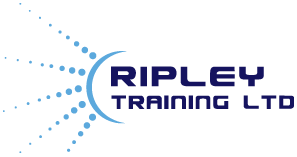Communicating and articulating yourself in a confident manner is said to be one of the key strengths of a great leader. Why is this? Well, it could be because self-confident people trust in their own abilities, have a general sense of control in their lives, and believe that within reason, they will be able to do whatever they wish, plan and expect.
Confidence in business
In a business environment, self-confidence is a very necessary attribute. For example, if you’re unsure of your own abilities, how can you convince an employer of your worth at an interview? “One of the biggest myths about self-confidence is that you have to be born with it. Self-confidence is actually a set of skills that can be learned, just like any other skill”, says Mike Smith, at Ripley Training.
Believe that it’s possible
“It’s also important to remember that if you’ve had your confidence destroyed, it is possible to build it up again and become even more resilient” adds Mike. So, if you want to communicate with confidence, you must believe that it is possible to change and you must be motivated to do so. The three core areas of self-belief and communicating with confidence are about:
• Having an underlying confidence in your own abilities, based on past successes;
• Having a positive yet realistic view of yourself and your situation;
• Developing a personal sense of self-worth that is not dependent on performance.
Communicating with confidence – in practice
So, putting this into practice, how can you start communicating with more confidence? You can start by identifying some of your personal and professional goals and then spending time practicing these new behaviours. You can also try our guidance below on how to build self-confidence:
1. Sell yourself (to yourself!)
List all your strengths and skills. Don’t be modest!
2. Use assertive language
Avoid the use of ‘hesitant’ words such as ‘possibly, ‘might’, ‘maybe’, ‘quite’. And when you’re speaking, don’t start sentences by apologising.
3. Challenge yourself
Move out of your comfort zone at every opportunity. Try new things – you will pick up new skills and come to know that you can cope with the unfamiliar.
4. Body Language
As 55% of what you say is conveyed by your body, think about how you sit and stand and use eye contact and gestures. To create a positive impression at work with colleagues or clients, walk into the room with a good posture and smile, make eye contact, and shake hands firmly. Remind and reassure yourself about what you do well and why you’re an expert in your field.
5. Prepare
If you’re giving a presentation for example, then make sure you’ve done lots of preparation; but most of all, preparation in knowing yourself and understanding the subject that you’ll be presenting, as this way, your confidence levels will increase.
6. Visualisation
Visualisation can be a really powerful tool. Try visualising a real life experience where you were successful and felt incredibly good about yourself. Bring to mind what it felt like, where you were, what you could see, smell and touch on that occasion. Fix this in your mind by visualising it every morning and evening for several weeks. You will then be able to recall easily that confident feeling in situations where you need a boost.
7. Observe and learn from others who are confident
If you have a friend who is self-confident, observe how they behave in situations that you would feel uncertain about. Then, try and act as they would. Use them as a role model.
Improve Communication Skills with Ripley Training
If you would like to find out more about how to communicate with confidence then our Communicating with Confidence and Personal Impact course is right for you. The course includes the importance of self-worth and how that is communicated, the benefits of taking control of your attitude and directing it, how to create a good first impression and behave in a more confident manner, and how to communicate in the right way in all situations. If you’re not sure which course is right for you, we provide a range of high quality and accessible training to suit your business’ needs. Get in touch today for more information.

